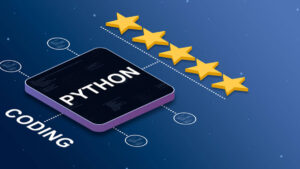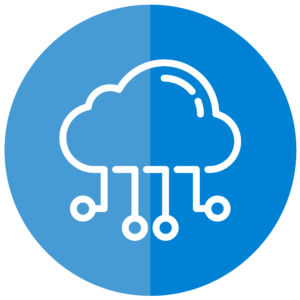Decentralized technology has created an impact on the education sector and as it enhanced opportunities in Africa’s rural communities by addressing persistent barriers including inadequate infrastructure, resource constraints, and economic disparities.
Students find it difficult to get quality education. Although , web3 is a game changer while connecting underserved learners through the implementation of blockchain-based education across rural regions of Africa. A key advantage of decentralized technology is that it makes learning accessible to everyone.
As it makes education accessible for every individual like blockchain, the best technology helps African youth easily access digital learning regardless of their location.
Blockchain-based education initiatives can provide African students with universal access to digital resources breaking all barriers of geographical isolation. In addition, blockchain improves the authenticity and reliability of records allowing students to earn tamper-proof, verifiable credentials.
Decentralised finance (DeFi) also helps tackle education problems in African villages. It encourages teamwork, letting local learning centers create peer-to-peer education programs. However, maximizing the impact of blockchain-based education in rural Africa requires addressing the digital divide.
Helping communities create their own learning networks
Encouraging community-focused educational networks through Web3 innovations have the potential to greatly improve access to education across Africa’s rural regions.The traditional education system also suffers from limited learning opportunities, and weak internet connection in remote villages. In African countries, by leveraging it, local communities share knowledge and resources. It creates learning more easily and it provides meaning for rural communities.
Young people in Africa contribute to enhancing trust and accountability. It gives community learning networks which are surely verified , ensuring transparency , clarity and reliability while using blockchain technology.
Even though there are areas where the internet service is limited, decentralization systems cater offline access to learning resources making it more convenient. Community-driven learning networks promote collaboration among participants like it encourages teamwork, mentorship, and applied skill development for young people in rural areas.
Empowering learners with affordable financial support through DeFi solutions
Decentralized finance (DeFi) solutions present an innovative solution to address these challenges by empowering students with affordable financial support directly in their hands. Through the implementation of blockchain-based education initiatives for young people in Africa, DeFi solutions offer speedy, traceable, and budget-friendly ways to deliver financial assistance. Merging financial aid to make a bigger impact on African countries to empower learners without having an interruption and any geographical location.
Enhancing Transparency in Education
Clear and open education matters for ensuring clarity, transparency , trust and fairness . It helps to be accountable to educators , students, and institutions. Defi systems often provide African Countries with technology to record students achievement , participation in a temper proof and verifiable manner. This will be able to secure all our transactions and help prevent fraud while improving administrative efficiency and ensures scholarships or financial support. Gradually , being transparent can help us to build a culture of integrity in rural education, guaranteeing that learners have access to genuine, high-quality education and equitable opportunities.
Empowering communities through stronger digital identity systems
Digital identity is essential for ensuring secure, inclusive, and verifiable access to services and opportunities if it promotes rural areas to overcome the challenges that they face for formal identification system and it led decentralized education systems in African countries and blockchain based identity solutions, verifiable digital identities that will unlock the educational resources and services. While strengthening digital identity can support inclusive and equitable education. By integrating the digital identity with a decentralised education system, African communities ensure that they take full advantage of global learning opportunities despite few limitations.
Overcoming Internet Connectivity Challenges
The adoption of decentralized networks in African countries can ensure access to educational content even with low bandwidth. Blockchain-based solutions enable students in remote areas to participate in learning without being entirely dependent on traditional internet services. This approach helps bridge the digital divide and allows rural learners to benefit from high-quality education, maintaining synchronization with global resources.
Building Digital Literacy Skills
Digital literacy is a core competency that enables students to engage effectively in modern education and international learning platforms. In areas such as rural Africa has limited exposure to technology and other online platforms that can hinder students’ vast learning and engage with the exclusivity of digital identity. By introducing blockchain technology helps African youth to develop essential digital skills while interacting with secure , and verifiable learning platforms. Investing in digital literacy can foster the future opportunities in digital economies and strengthens the sustainability of decentralized education networks.
How eTraverse Can Help Bridge Educational Gaps in Rural Africa with Web3 and Decentralized Learning
eTraverse helps with Web3 technologies to improve education access in Africa’s rural regions, in regions where connectivity issues and limited educational resources often block students from learning effectively. By having decentralised education systems for African students to access global education content, participate in blockchain education initiatives for African youth and verifiable digital certificates .
Conclusion:
Web 3 , blockchain based technology like decentralised technology fosters education in African rural areas. It improves internet connection, enabling digital literacy , and providing secure digital identities. These not only empower but will have quality education regardless of location or economic barriers. Ultimately such types of opportunity prepare every individual to thrive in the global digital economy. eTraverse leverage and take initiatives to tackle Web 3 technologies, and provide DeFi solutions to long standing challenges of rural education.
Contact Us Today













